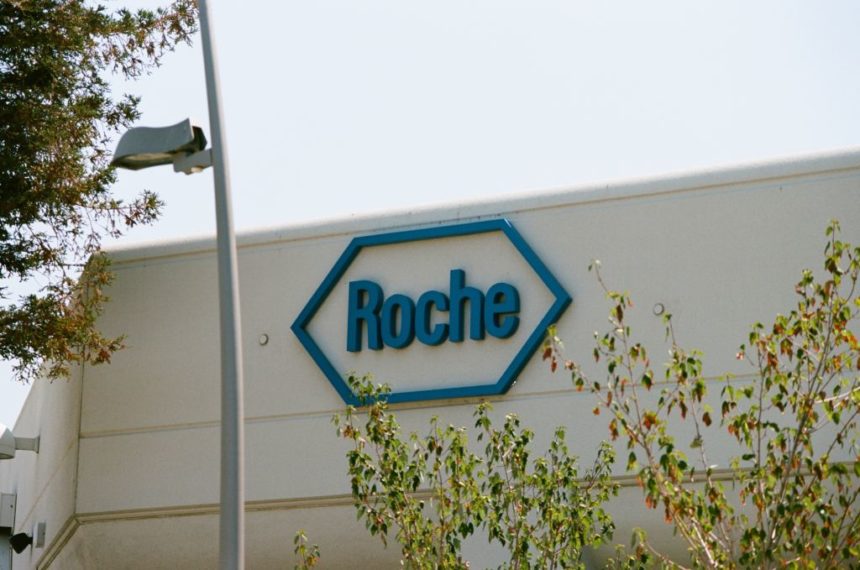An experimental Alzheimer’s drug developed by Roche flunked a pair of late-stage trials, the firm said Monday. The highly anticipated readout posed a setback for the Swiss drugmaker but a boon to rivals in the potentially lucrative — and risky — area of plaque-targeting monoclonal antibodies.
Roche’s Gantenerumab, a member of the anti-amyloid class, failed to meet its primary endpoint of slowing cognitive decline in two phase 3 studies. The studies, dubbed GRADUATE I and II, were testing it in people with mild cognitive impairment due to Alzheimer’s and mild Alzheimer’s dementia.
Participants in the treatment group showed changes of 0.31 and 0.19, respectively, across the two studies on a major outcome measure known as clinical dementia rating-sum of boxes, or CDR-SB. This represents a relative reduction in clinical decline of 8% and 6%, respectively, versus placebo. Neither change was statistically significant.
By comparison, subjects in Eisai and Biogen’s test of rival anti-amyloid agent lecanemab showed a 0.45 change on the CDR-SB, according to a topline release of data from their CLARITY-AD trial in September. That difference amounted to a statistically significant 27% change.
The lecanemab findings are slated to receive a full airing later this month. Meanwhile, gantenerumab’s setback was not totally unexpected. Roche execs, according to analysts, have done a good job of keeping investor expectations in check.
Nevertheless, the news is likely to give a boost to Eisai and Biogen as well as to Eli Lilly, whose anti-amyloid agent donanemab is heading toward a phase 3 data readout in mid-2023. The failure of gantenerumab means one less competitor for the other firms to worry about.
“What could have been an oligopoly now becomes a duopoly,” wrote Wolfe Research’s Tim Anderson in a note to investors.
That means appreciably higher sales forecasts. Anderson raised his 2024 lecanemab forecast (just Biogen’s portion) from about $900 million to $1.3 billion, while donanemab’s spiked from $2.1 billion to $4.5 billion. Thus far, donanemab’s efficacy in phase 2 has been shown to be roughly similar to lecanemab’s in phase 3.
Then again, Roche did its rivals no favors in terms of de-risking the “amyloid hypothesis,” the theory which holds that removing amyloid — the sticky brain plaque associated with Alzheimer’s — can slow clinical decline in these patients.
There has been a hesitancy in the clinical community to believe the lecanemab findings, Anderson observed. No doubt much of the lingering skepticism can be traced to the extreme controversy surrounding Biogen’s Alzheimer’s drug Aduhelm, which was approved in June 2021 but never generated any momentum. Aduhelm was largely shut out of Medicare reimbursement and was rejected by many members of the medical community. It’s likely shelved for good.
“Positive results from another company — independent of BIIB/Eisai — would help put any concerns to rest and prove that CLARITY-AD results weren’t merely a fluke and a false positive,” Anderson wrote.
He added that, despite Roche’s failure and the Aduhelm effect, he and his team are no less bullish on the anti-amyloid class.
“Even though the clinical benefit from these drugs is likely to be modest at best, it is still enough to be very commercially relevant,” Anderson explained. “Has this meant that every drug in the class would work? No, but most of them should.”
As for gantenerumab, don’t count it out just yet. Roche initiated a new phase 3 trial, SKYLINE, earlier this year, designed to test its potential to slow disease progression in people with the earliest biological signs of Alzheimer’s disease.
Indeed, going further upstream than the GRADUATE trials makes sense. “Most likely the biggest problem with gantenerumab in these first two phase 3 readouts has been the slow dose titration Roche employed, spanning nine months,” explained Anderson.
That was meant to reduce the rate of side effects. But with subjects’ dementia presumably worsening during that time — their underlying condition deteriorated by almost a year before the high doses kicked in — the studies’ ability to show clinical benefit may have been hamstrung, the analyst speculated.
SKYLINE, if it continues, “will have better odds, but it is not scheduled to read out until 2028, and investors will likely assume Roche will be a day late and a dollar (or Swiss franc!) short,” Anderson quipped. Previously, he had modeled gantenerumab peak sales of nearly 4 billion Swiss francs, or roughly $4.23 billion.








